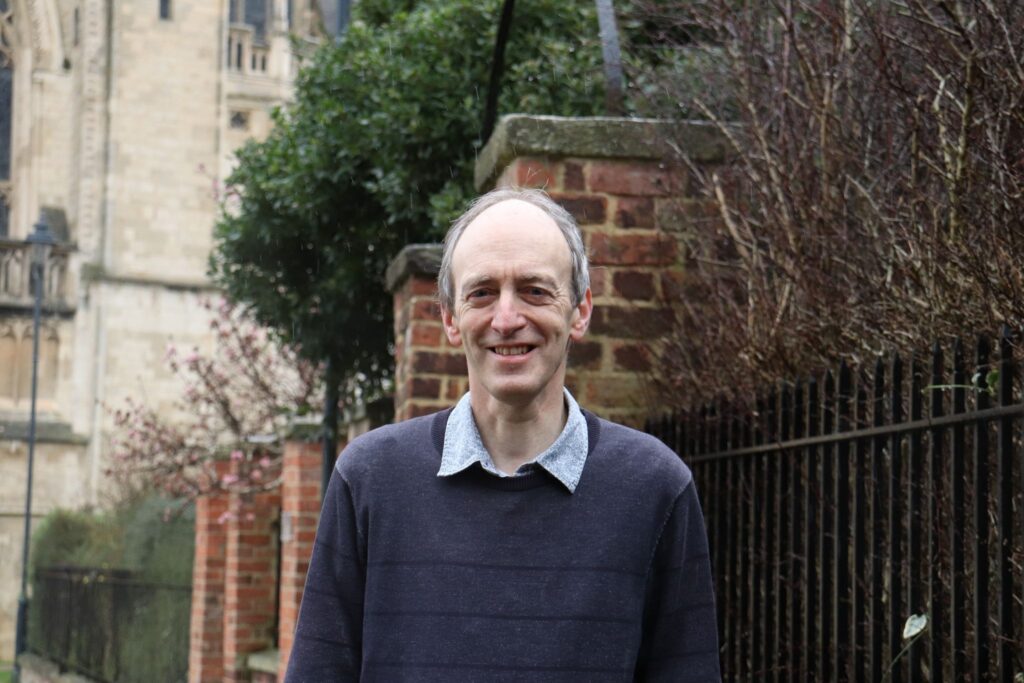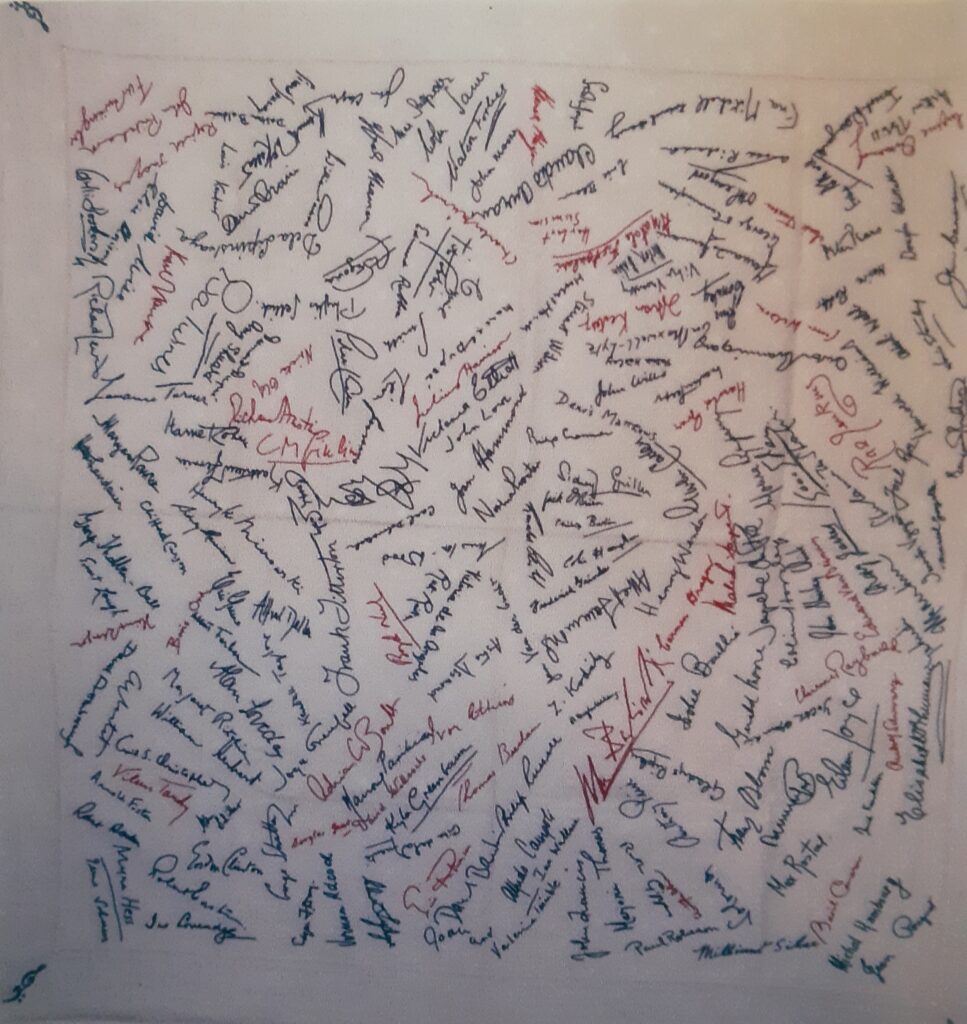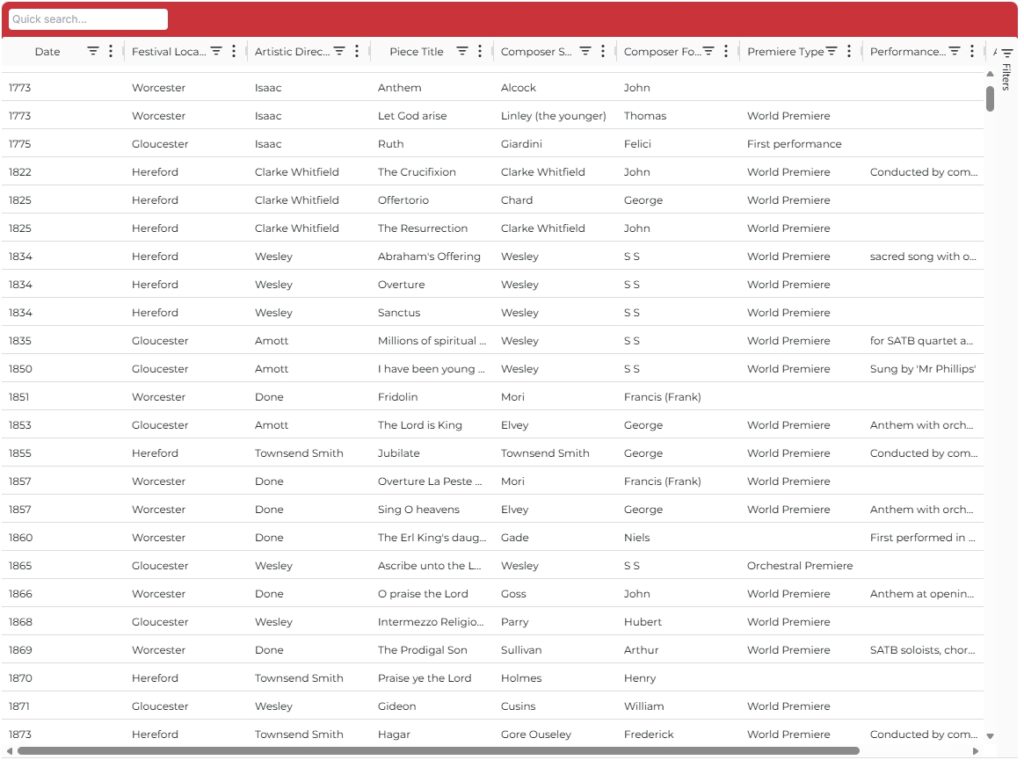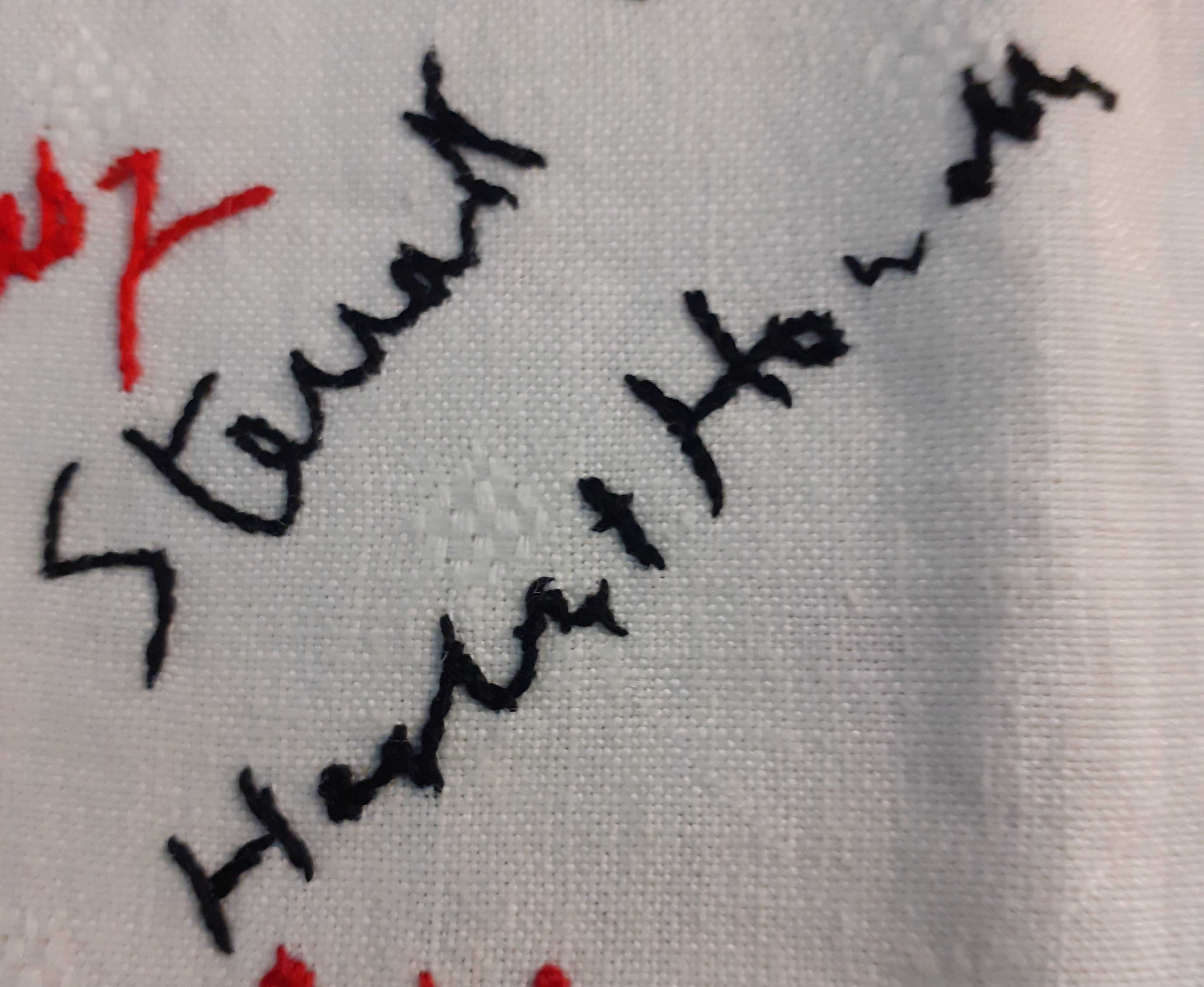The following is a guest post from Simon Carpenter, Volunteer Archivist to the Three Choirs Festival:
The Festival
Generally believed to be the world’s oldest classical music festival, the Three Choirs Festival alternates annually between the cathedral cities of Gloucester, Hereford and Worcester. Originating some time in the early 18th century, it has long provided a platform for composers and has seen the premieres of some of the best known British classical compositions, including Ralph Vaughan Williams’ Fantasia on a Theme of Thomas Tallis. Top names in classical music have also always performed at the Festivals over the years.

About me
Being the Festival’s volunteer historian and archivist is my dream role, combining as it does all of my main passions – choral music, history, information management and dissemination. I have a librarianship degree (BA) and postgraduate degrees in history and information management. Both by research.
My interest in choral music stems from my time as a chorister in Guildford Cathedral, at the time Barry Rose was in charge there. I became aware of the existence of the Three Choirs Festival during that time, and was introduced to the church music of ‘Three Choirs composers’ Elgar, Vaughan Williams, Howells, Brewer and Sumsion. As choristers, we also took part in the occasional orchestral concert in the cathedral, including on one memorable occasion, The Dream of Gerontius.
I have loved history research basically since I left the cathedral choir and had more time on my hands. My initial career choice was to be an archivist, however my weak A-level results and lack of Latin (at Guildford the choristers skipped it) did for me on that front and I ended up as a librarian. But I did do a stint as a volunteer in Surrey Record Office’s Guildford branch before going to college, and more recently spent about a year as a weekly lunchtime volunteer in Gloucester Cathedral library.

My role
Since my retirement from paid employment a few years ago I have been based with the Festival’s small professional management team in their office, which is by the cathedral in Gloucester. We have a small archive there, which I have now catalogued. But the vast majority of the Festival records are held in the libraries of the three cathedrals and their local county archive collections.
To quote my self-drafted job description, my role involves:
• Cataloguing and catalogue maintenance of the archive stock in the Festival office, indexing (e.g. meeting minutes) where appropriate
• Responding to internal and external Festival history-based enquiries
• Researching and writing material for the Festival programmes, newsletters and website as requested
• Proactively suggesting possible history/heritage initiatives (e.g. anniversary commemorations) to the Festival
• Developing and maintaining the Festival premieres spreadsheet
• Keeping abreast of relevant research developments and running a network of researchers
• Undertaking relevant personal research and preparing academic papers and articles
• Liaising with other archivists who hold collections of Festival archives.
I love it all!

I am particularly proud of the premieres spreadsheet – a list of all our first performances since the early 18th century when William Boyce composed new material for us. To compile it was the first task I was given on my arrival in the office. It took a lot of effort, as it had never been attempted before, but is now over 600 pieces strong, is updated after every Festival and now sits on our website.

Three Choirs Festival in Ten Concerts book
At the same time as starting to work on that spreadsheet the idea of producing a book around a few of the major premiere debuts of some of the composers most associated with the Festival took shape in my mind. Eight names immediately sprang to mind, who now make up the middle chapters of the book, namely Parry, Alice Mary Smith, Rosalind Ellicott, Elgar, Vaughan Williams, Howells, Holst and Finzi. I then tried out the idea on the then Festival CEO and the author of the official history of the Festival, Tony Boden. They were most encouraging so I then approached Logaston Press, as the three counties’ leading local history publisher, with the idea. They crucially also liked it, and the new book was the result. My hope for my contribution to the Festival’s recorded history is that it complements the comprehensive approach of my predecessors’ work by providing an accessible overview of the Festival’s history over its 300-plus years. I am also pleased that it highlights some of the leading female composers who have featured over the year.
The Festival itself is looking forward to celebrating its 300th edition in Hereford in 2028. It’s going to be a mega party! Next year’s in Gloucester also looks pretty good.
